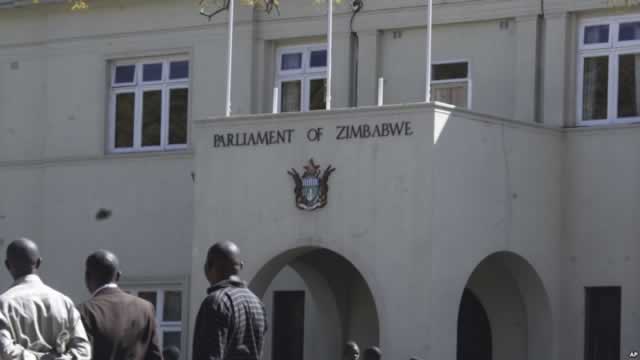Bahá’í Faith: 172 years of God’s revelation
Flora Teckie
On Monday, Harare Bahá’ís will join the Bahá’ís all over the world to celebrate the 172nd anniversary of the founding of their Faith. Founded in 1844, the Baha’i Faith has become the world’s second most widespread religion (according to Encyclopaedia Britannica) and is among the fastest growing world religions. Bahá’ís reside in more than 116 000 localities around the world. They represent 2 112 different ethnic and tribal groups.The Bahá’í Faith began with the mission entrusted by God to two Divine Messengers — the Báb and Bahá’u’lláh. In the middle of the 19th century, The Báb — the Herald of the Bahá’í Faith — announced that He was the bearer of a message destined to transform humanity’s spiritual life. His primary mission was to prepare the way for the coming of Bahá’u’lláh, who would usher in an age of peace and justice.
Bahá’u’lláh (1817–1892), the Founder of the Bahá’í Faith, is regarded by the Bahá’ís as the most recent in the line of Messengers of God. Bahá’u’lláh delivered a new Revelation from God to humanity. Thousands of verses, letters and books flowed from His pen.
In His Writings, He outlined a framework for the development of a global civilisation which takes into account both the spiritual and material dimensions of human life. His Writings offer spiritual guidance as well as directives for personal and social conduct. They are designed to reshape the divisive society of the present world and usher in an era of universal peace.
As in the case of the other Messengers of God, Bahá’u’lláh was the direct recipient of Revelation from God. Revelation, in the Bahá’í view, is the infallible and direct conveyance of God’s creative Word that is accessible only to the Messengers of God who transmit it to mankind.
This innate, divinely revealed knowledge enables them to establish laws and teachings that correspond to human needs and conditions at a given time in history.
Writings of Bahá’u’lláh cover a vast range of subjects from social issues such as the oneness of humanity, racial integration, the equality of men and women and disarmament, to those questions that affect the innermost life of the human soul. From his words, the worldwide Bahá’í community draws its inspiration, discovers its moral bearing and derives creative energy.
In His Writings, Bahá’u’lláh confirm that there is only one God. Although people may pray to God in different languages and call Him by different names, nevertheless they have in mind the same Almighty Creator.
The belief and conviction that we all belong to one human family is at the heart of the Bahá’í Faith. The principle of the oneness of humankind is “the pivot round which the teachings of Bahá’u’lláh revolve . . . ”
The Bahá’í Writings state that: “There is perfect brotherhood underlying humanity, for all are servants of one God and belong to one family under the protection of divine providence,” and regarding the purpose of religion they state:
“The fundamental purpose animating the Faith of God and His Religion is to safeguard the interests and promote the unity of the human race, and to foster the spirit of love and fellowship among men”.
The Writings of Bahá’u’lláh affirm the principle of unity in diversity. More than just tolerance of differences or celebration of superficial aspects of diverse cultures, the diversity of the human family should be the cause of abiding love and harmony, “as it is in music where many different notes blend together in the making of a perfect chord”.
The teachings of the Bahá’u’lláh also include the elimination of all forms of prejudice; recognition of the essential oneness of the world’s great religions; the elimination of extremes of poverty and wealth; universal education; the harmony of science and religion; and the establishment of a world federal system based on principles of collective security and the oneness of humanity.
Bahá’ís are urged to have a high sense of moral rectitude in their activities, purity, chastity and integrity in their individual lives, and complete freedom from prejudice in their dealings with people of every race, nationality, class or religion.
Moral and spiritual advancement, Bahá’ís believe, is crucial to our well-being in both this life and the next. As Bahá’u’lláh counsels: “Possess a pure, kindly and radiant heart, that thine may be a sovereignty ancient, imperishable and everlasting”.
The Bahá’í Faith does not have a priesthood or professional clergy. Bahá’í communities are administered and guided by elected institutions which operate at local, national and international levels.
At international level the governing council of the Bahá’í international community is the Universal House of Justice. At national level the National Spiritual Assemblies administer and guide the affairs of the Bahá’í Faith in their respective countries. At city, town or village levels, the Local Spiritual Assemblies direct the affairs of their respective communities.
Because of this hierarchy, decision making is entrusted to the lowest level practicable — thereby providing a unique vehicle for grassroots involvement in administration of the affairs of the Bahá’í Faith — while at the same time providing a level of coordination and authority that makes possible cooperation on a global scale.
For feedback please contact:[email protected]











Comments